

TEXT philipp kleiber – PHOTO eileen jordan
SCENT
KNOWLEDGE
A good perfume is a composition of various scents designed by creators who see that composition not just as art but also as craft.
Distilled water, alcohol and aromatic compounds – that’s all it needs to create a scent. What sounds so simple is an elaborate process that can only be fulfilled by special creators because the composition of the aromatic compounds makes the difference between a masterpiece and an ordinary perfume.
A fragrance is separated into 3 different layers: Top Notes, Middle Notes and Base Notes.
Perfumers talk about the fragrance pyramid. Every layer is a combination of several aromatic compounds.
A fragrance is separated into 3 different layers: Top Notes, Middle Notes and Base Notes. Perfumers talk about the fragrance pyramid. Every layer is a combination of several aromatic compounds.
Top Notes
The Top Notes are the one you notice first and can be seen as the introduction of the scent. The compounds are intense – fruity and spicy notes are often used – but also very volatile. After about 15 minutes the Top Notes have evaporated. But that doesn’t impact the importance of the Top Layer, because it’s the first impression you get from the perfume and nothing’s more important than a good first impression.
Bergamot, blood orange, cananga, rockrose, clemetine, eucalyptus, ginger grass, grapefruit, immortelle, chamomile, lime, marjoram, lemon balm, mint, myrtle, palmarosa, rosewood, rosemary, sassafras, spearmint, juniper, cedar leaves, cypress.
Middle Notes
The Middle Notes are the heart of the perfume, its body. These mostly floral notes appear as soon as the Top Notes begin to evaporate. The Middle Notes characterise a scent and harmonise the Top and Base Notes. Middle Notes remain for several hours.
Anise, bitter orange, cajeput, verbena, fennel, guaiac wood, honey, immortelle, iris, calamus, carrot, mountain pine, lavender, lemongrass, mace blossom, mandarin, mimosa, musk, nutmeg, niaouli, petitgrain, peppermint, pepper, sage, tea tree, vetiver, hyssop, cedar, cypress.
Base Notes
The Base Notes are the fundament of the composition and last the longest. The notes are profound, heavy and luscious and serve as fixatives which hold the other Top and Middle Notes. It takes several minutes until the base notes a revealed and they’re the reason why some perfumes smell differently on different people.
Turpentine, benzoin, birch bark, damask rose, elemi, oakmoss, galbanum, geranium, ginger, jasmine, mastic pistachio, clary sage, myrrh, neroli, clove, patchouli, sandalwood, tea tree, vanilla, Cedar wood, ylang ylang.
Top Notes
The Top Notes are the one you notice first and can be seen as the introduction of the scent. The compounds are intense – fruity and spicy notes are often used – but also very volatile. After about 15 minutes the Top Notes have evaporated. But that doesn’t impact the importance of the Top Layer, because it’s the first impression you get from the perfume and nothing’s more important than a good first impression.
Bergamot, blood orange, cananga, rockrose, clemetine, eucalyptus, ginger grass, grapefruit, immortelle, chamomile, lime, marjoram, lemon balm, mint, myrtle, palmarosa, rosewood, rosemary, sassafras, spearmint, juniper, cedar leaves, cypress.
Middle Notes
The Middle Notes are the heart of the perfume, its body. These mostly floral notes appear as soon as the Top Notes begin to evaporate. The Middle Notes characterise a scent and harmonise the Top and Base Notes. Middle Notes remain for several hours.
Anise, bitter orange, cajeput, verbena, fennel, guaiac wood, honey, immortelle, iris, calamus, carrot, mountain pine, lavender, lemongrass, mace blossom, mandarin, mimosa, musk, nutmeg, niaouli, petitgrain, peppermint, pepper, sage, tea tree, vetiver, hyssop, cedar, cypress.
Base Notes
The Base Notes are the fundament of the composition and last the longest. The notes are profound, heavy and luscious and serve as fixatives which hold the other Top and Middle Notes. It takes several minutes until the base notes a revealed and they’re the reason why some perfumes smell differently on different people.
Turpentine, benzoin, birch bark, damask rose, elemi, oakmoss, galbanum, geranium, ginger, jasmine, mastic pistachio, clary sage, myrrh, neroli, clove, patchouli, sandalwood, tea tree, vanilla, Cedar wood, ylang ylang.
In addition to the composition of the various notes, the proportion between distilled water, alcohol and aromatic compounds plays a huge role in the quality of a perfume. The higher the ratio of the aromatic compounds, the higher the quality of the perfume (and the higher the prices).
The proportion divides the scents into different dilution classes:
Eau de Cologne (EdC)
3-5% aromatic compounds
The less pricy option is the most volatile one. The name goes back to the fragrances made in the 18th century in Cologne/Germany and later became a term for less concentrated perfumes.
Eau de Toilette
(EdT)
5-8% aromatic compounds
Most scents are distributed as EdTs – specially for men whose perfumes are usually Eau de Toilette. You should use it every day!
Eau de Parfum
(EdP)
8-15% aromatic compounds
More intense than the EdT. It usually doesn’t need more than 2 pushes with the sprayer and it remains on the cloths for several days.
Parfum
15-40% aromatic compounds
Usually, you get it without a sprayer and only in very small flacons, because it only needs one drop on your wrist or neck as the scent is so intense.
Eau de Cologne (EdC)
3-5% aromatic compounds
The less pricy option is the most volatile one. The name goes back to the fragrances made in the 18th century in Cologne/Germany and later became a term for less concentrated perfumes.
Eau de Toilette
(EdT)
5-8% aromatic compounds
Most scents are distributed as EdTs – specially for men whose perfumes are usually Eau de Toilette. You should use it every day!
Eau de Parfum
(EdP)
8-15% aromatic compounds
More intense than the EdT. It usually doesn’t need more than 2 pushes with the sprayer and it remains on the cloths for several days.
Parfum
15-40% aromatic compounds
Usually, you get it without a sprayer and only in very small flacons, because it only needs one drop on your wrist or neck as the scent is so intense.
FRNKOW staff picks (spring 2021)
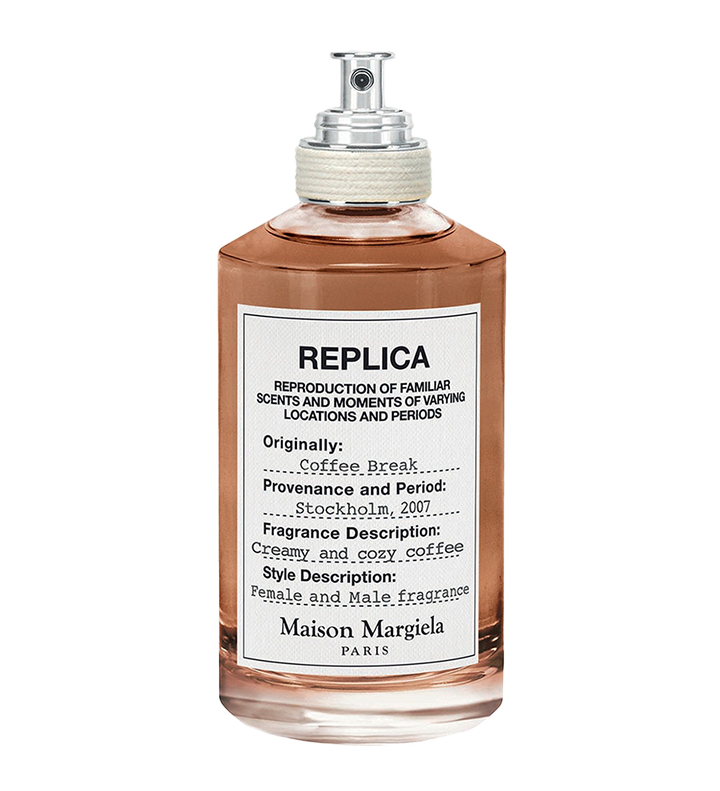
Maison Margiela
Replica – Coffee Break
Top Notes
apple, coffee
Middle Note
lemon
Base Notes
milk, sandelwood
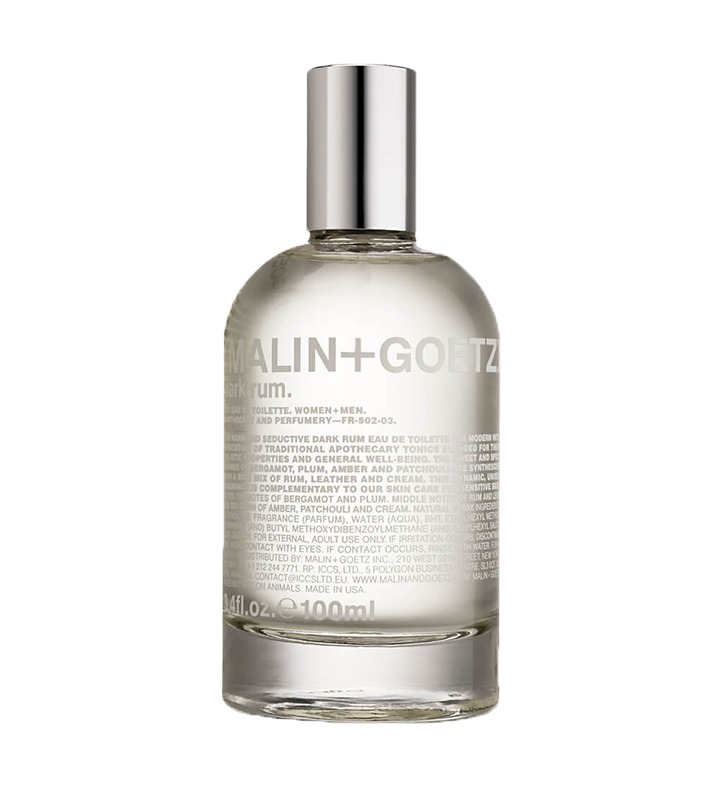
Malin + Goetz
Dark Rum
Top Notes
bergamot, plum, anise
Middle Notes
leather, rum, vanilla
Base Notes
patchouli, amber, milk
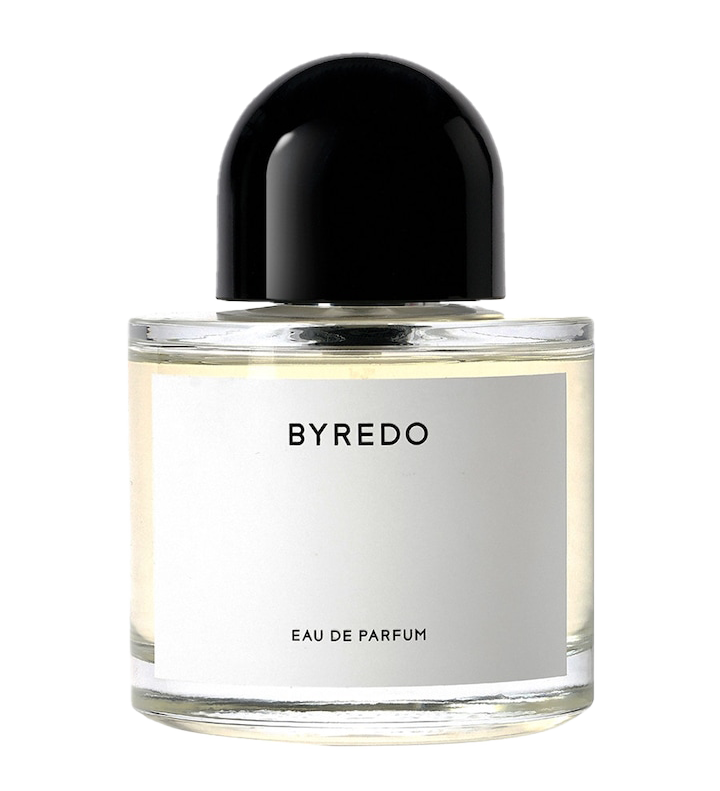
Byredo
Unnamed
Top Notes
pink pepper, gin
Middle Notes
violet, orris root
Base Notes
oakmoos, balsam fir

Maison Margiela
Replica – Coffee Break
Top Notes
apple, coffee
Middle Note
lemon
Base Notes
milk, sandelwood

Malin + Goetz
Dark Rum
Top Notes
bergamot, plum, anise
Middle Notes
leather, rum, vanilla
Base Notes
patchouli, amber, milk

Byredo
Unnamed
Top Notes
pink pepper, gin
Middle Notes
violet, orris root
Base Notes
oakmoos, balsam fir
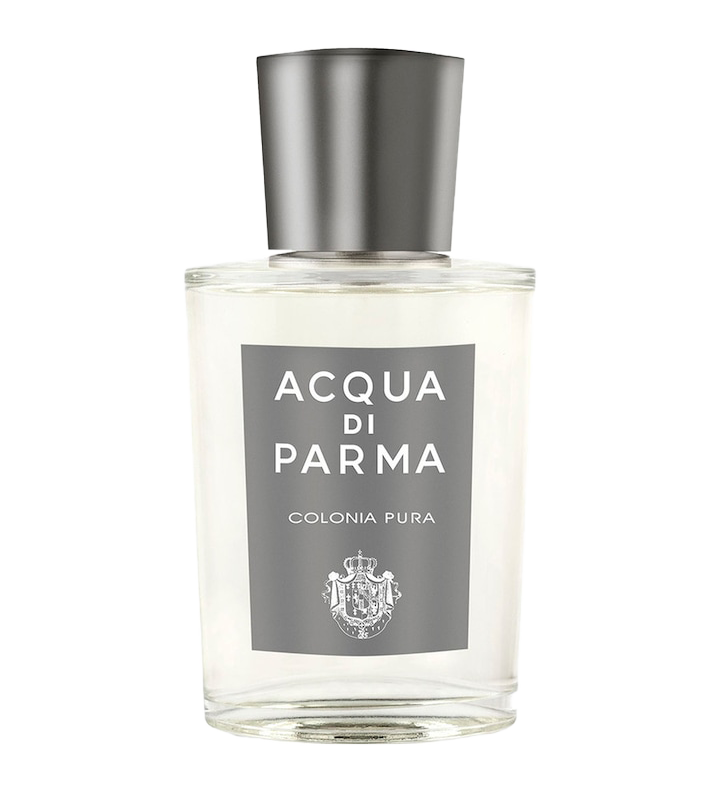
Acqua di Parma
Colonia Pura
Top Notes
bergamot, orange, petitgrain
Middle Notes
coriander oil, jasmine sambac, narcissus
Base Notes
virginian cedarwood, patchouli, musk
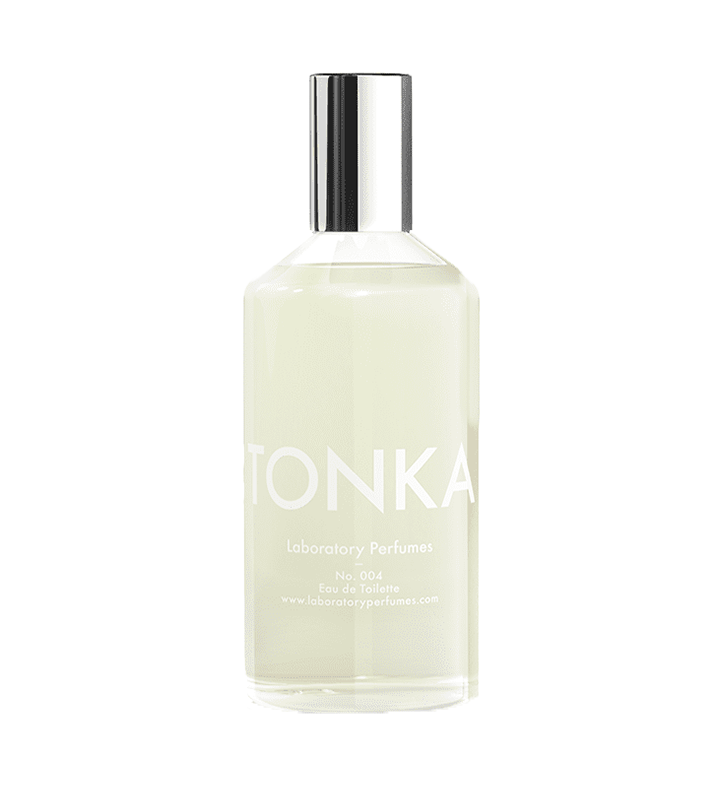
Laboratory Perfumes
No. 004 Tonka
Top Notes
mandarin, pink pepper
Middle Notes
woodland aromatics
Base Note
tonka bean
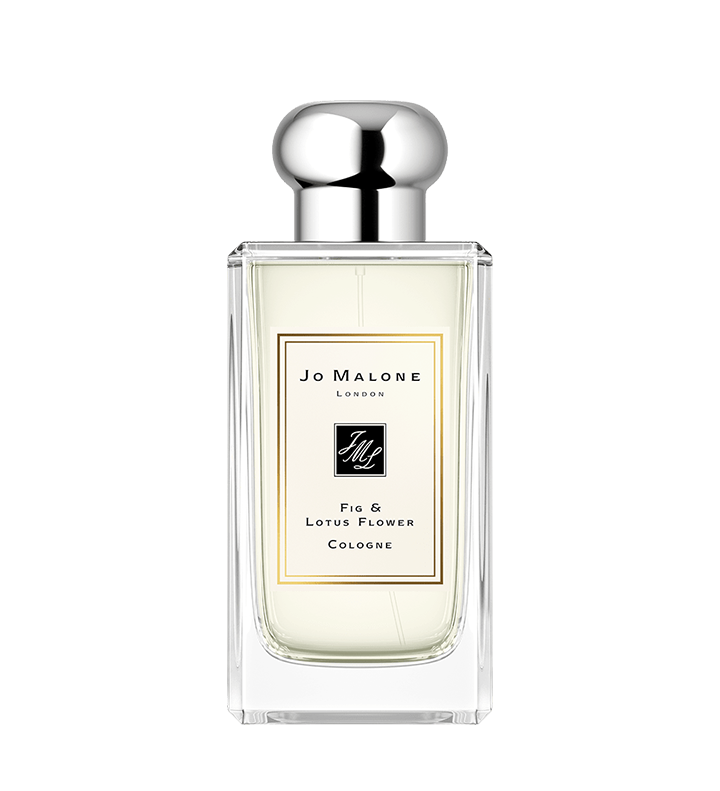
Jo Malone
Fig and Lotus Flower
Top Note
fig leaf
Middle Notes
lotus flower, neroli
Base Notes
vetiver, musk

Acqua di Parma
Colonia Pura
Top Notes
bergamot, orange, petitgrain
Middle Notes
coriander oil, jasmine sambac, narcissus
Base Notes
virginian cedarwood, patchouli, musk

Laboratory Perfumes
No. 004 Tonka
Top Notes
mandarin, pink pepper
Middle Notes
woodland aromatics
Base Note
tonka bean

Jo Malone
Fig and Lotus Flower
Top Note
fig leaf
Middle Notes
lotus flower, neroli
Base Notes
vetiver, musk
